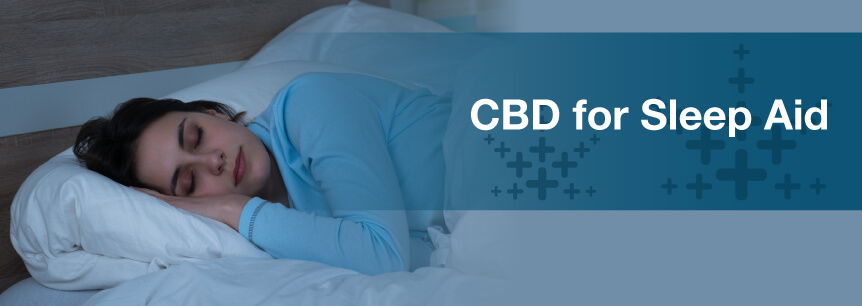
Today, more than 50 million Americans cope with one of 80 sleep disorders. Insomnia is the most common, followed by sleep apnea, which affects approximately 25 million Americans. But then there’s common issues like jet lag and too much “screen time” that can also interfere with sleep cycles. For people who don’t want to take sleeping pills, which can be risky, natural sleep remedies like melatonin supplements and even cannabidiol (CBD) offer an alternative and healthier way to combat sleep problems.
Every marijuana plant contains chemical compounds, referred to as cannabinoids. Two of the most familiar include cannabidiol (CBD) and tetrahydrocannabinol (THC). In comparison to THC, CBD has non-psychoactive effects, meaning it has the potential to alleviate physical symptoms of pain, nausea and anxiety, without getting you high
The overall quality of your sleep is determined by receptors throughout your body, known as the endocannabinoid system. Two of the receptors, called CB1 and CB2, interact with cannabinoids differently. Researchers believe that CB1 receptors help regulate our circadian rhythms and sleep-wake cycles. However studies have shown that cannabis with high concentrations of THC can disturb your circadian rhythm, causing you to oversleep and feel more tired during the day.
Another benefit of CBD, unlike THC, is that it activates the serotonin receptor. This alone can alleviate anxiety, which is also a common complaint for people who have problems falling asleep and staying asleep. So while CBD may not directly cure your insomnia, it can subside anxiety-induced sleeping issues, and simply help you relax to get to sleep faster.
Some sleeping disorders, like insomnia, for example, can either be acute or chronic. If you have trouble getting to sleep or staying asleep for more than three nights a week, you most likely have the latter form of the condition. That’s why it’s important to consult with your doctor to find out if you have a temporary disruption in your sleeping patterns or if you have a more serious issue, in which case might require you to take prescribed medication.
Here are some sleep-related conditions that CBD could help with:
In some cases, sleeping medication is necessary, but for those with temporary sleeping irregularities, it might not be the best option. Research shows that some prescription sleeping pills have side effects, potentially including dependence, impaired driving, imbalance, erratic behavior and possible overdose.
CBD is not completely risk-free, but it may have fewer side effects, such as fatigue or changes in appetite, according to current existing research. CBD might not act as a long-term solution to curing your sleep problems, but it can be a short-term solution, with far less risk of becoming addicted. Another possible benefit of taking CBD over prescription sleep aids is that it’s less likely to affect your disposition upon waking up. Prescription sleep aids can cause you to oversleep or wake up feeling disoriented, whereas CBD is less likely to cause grogginess.
Adding CBD to your bedtime routine could help you get better sleep. Adults generally require seven to nine hours of sleep per night, but roughly 35 percent of Americans report sleeping less than seven hours. Less sleep not only raises your risk for conditions like heart disease but it can also contribute to weight gain and depression. By improving the quality and duration of your sleep, so can your ability to focus, feel energized and well-rested throughout the day.
Before incorporating any supplement or medicine into your health regime, it’s important to discuss it with your physician. CBD can interact negatively with other medications you may be taking, so it’s important to disclose this to your doctor, especially to find what dosage may be right for you.
If you want to take CBD to improve your sleep, you can take it in the following forms:
No Information on MarijuanaDoctors.Com should be used to diagnose, treat, prevent or cure any disease or condition. You can view our Full Disclaimer here.